Constance Crozier
RL2Grid: Benchmarking Reinforcement Learning in Power Grid Operations
Mar 29, 2025Abstract:Reinforcement learning (RL) can transform power grid operations by providing adaptive and scalable controllers essential for grid decarbonization. However, existing methods struggle with the complex dynamics, aleatoric uncertainty, long-horizon goals, and hard physical constraints that occur in real-world systems. This paper presents RL2Grid, a benchmark designed in collaboration with power system operators to accelerate progress in grid control and foster RL maturity. Built on a power simulation framework developed by RTE France, RL2Grid standardizes tasks, state and action spaces, and reward structures within a unified interface for a systematic evaluation and comparison of RL approaches. Moreover, we integrate real control heuristics and safety constraints informed by the operators' expertise to ensure RL2Grid aligns with grid operation requirements. We benchmark popular RL baselines on the grid control tasks represented within RL2Grid, establishing reference performance metrics. Our results and discussion highlight the challenges that power grids pose for RL methods, emphasizing the need for novel algorithms capable of handling real-world physical systems.
Learning a local trading strategy: deep reinforcement learning for grid-scale renewable energy integration
Nov 23, 2024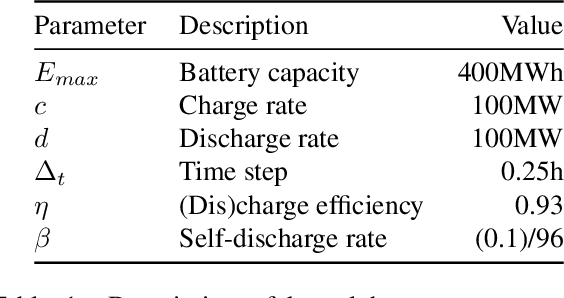
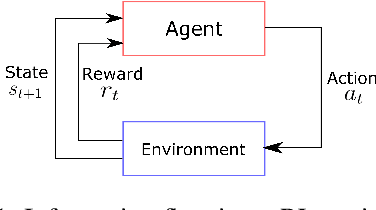

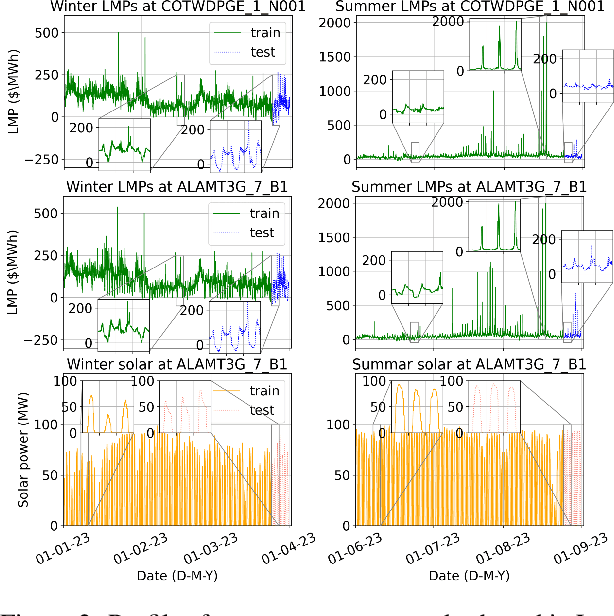
Abstract:Variable renewable generation increases the challenge of balancing power supply and demand. Grid-scale batteries co-located with generation can help mitigate this misalignment. This paper explores the use of reinforcement learning (RL) for operating grid-scale batteries co-located with solar power. Our results show RL achieves an average of 61% (and up to 96%) of the approximate theoretical optimal (non-causal) operation, outperforming advanced control methods on average. Our findings suggest RL may be preferred when future signals are hard to predict. Moreover, RL has two significant advantages compared to simpler rules-based control: (1) that solar energy is more effectively shifted towards high demand periods, and (2) increased diversity of battery dispatch across different locations, reducing potential ramping issues caused by super-position of many similar actions.
GridLearn: Multiagent Reinforcement Learning for Grid-Aware Building Energy Management
Oct 12, 2021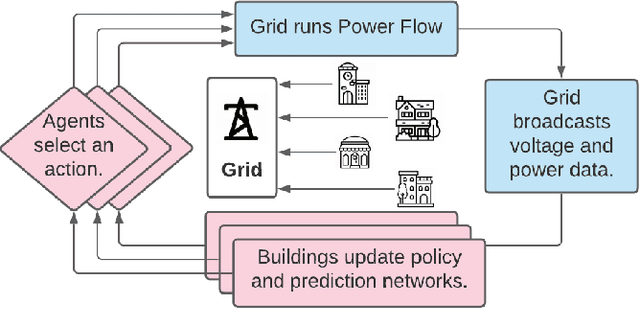

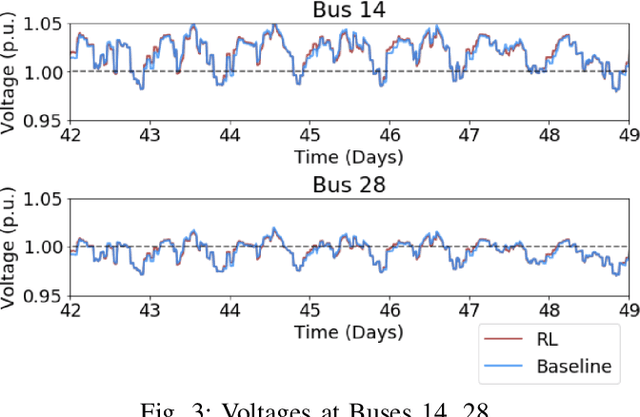
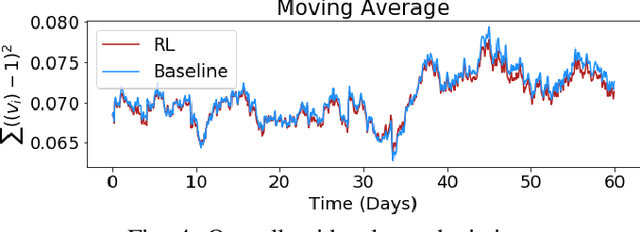
Abstract:Increasing amounts of distributed generation in distribution networks can provide both challenges and opportunities for voltage regulation across the network. Intelligent control of smart inverters and other smart building energy management systems can be leveraged to alleviate these issues. GridLearn is a multiagent reinforcement learning platform that incorporates both building energy models and power flow models to achieve grid level goals, by controlling behind-the-meter resources. This study demonstrates how multi-agent reinforcement learning can preserve building owner privacy and comfort while pursuing grid-level objectives. Building upon the CityLearn framework which considers RL for building-level goals, this work expands the framework to a network setting where grid-level goals are additionally considered. As a case study, we consider voltage regulation on the IEEE-33 bus network using controllable building loads, energy storage, and smart inverters. The results show that the RL agents nominally reduce instances of undervoltages and reduce instances of overvoltages by 34%.
Improving the Scalability of a Prosumer Cooperative Game with K-Means Clustering
Mar 26, 2019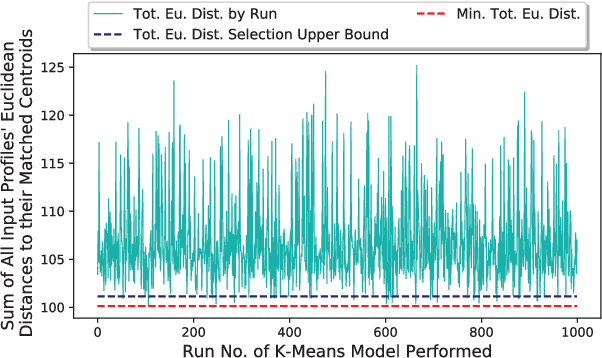
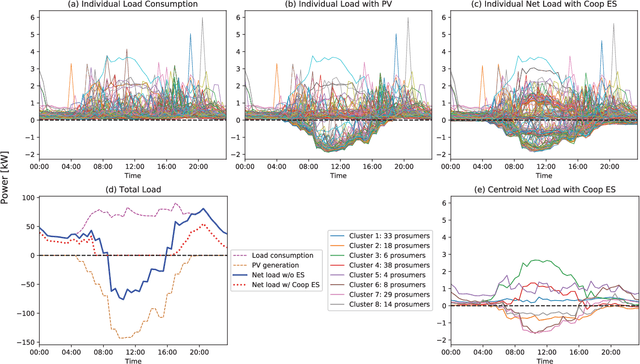
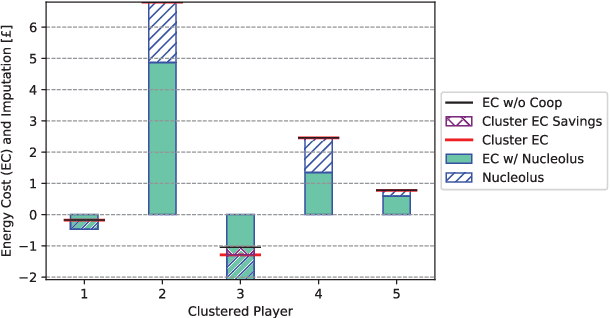
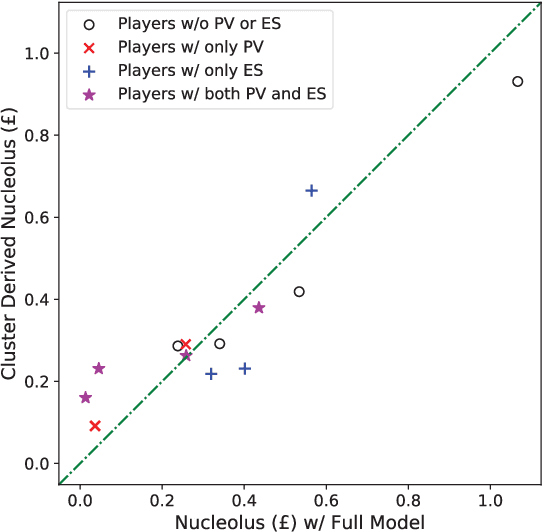
Abstract:Among the various market structures under peer-to-peer energy sharing, one model based on cooperative game theory provides clear incentives for prosumers to collaboratively schedule their energy resources. The computational complexity of this model, however, increases exponentially with the number of participants. To address this issue, this paper proposes the application of K-means clustering to the energy profiles following the grand coalition optimization. The cooperative model is run with the "clustered players" to compute their payoff allocations, which are then further distributed among the prosumers within each cluster. Case studies show that the proposed method can significantly improve the scalability of the cooperative scheme while maintaining a high level of financial incentives for the prosumers.
 Add to Chrome
Add to Chrome Add to Firefox
Add to Firefox Add to Edge
Add to Edge